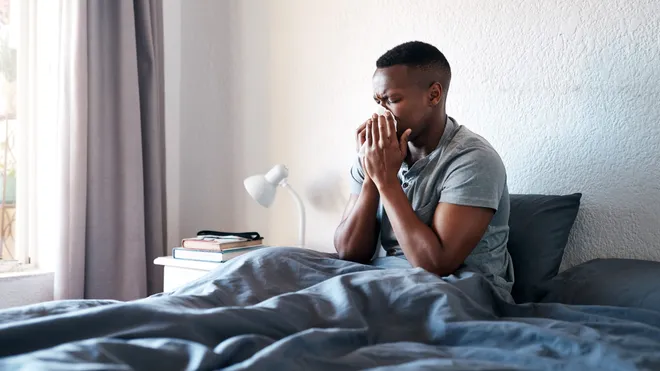As respiratory infections increase in South Florida, particularly among children, concerns about “walking pneumonia” are rising. Walking pneumonia, caused by the Mycoplasma pneumoniae (M. pneumoniae) bacteria, generally leads to mild respiratory illness, although it can occasionally progress to pneumonia. Health experts, including Dr. Marcos Mestre from Nicklaus Children’s Hospital, are urging parents and caregivers to be vigilant as cases increase locally and across the nation.

(image: getty images)
Recognizing the Symptoms of Walking Pneumonia
Walking pneumonia may initially feel like a severe cold or flu but can lead to more specific symptoms, especially in children ages 5 to 17 and young adults. According to the CDC and Cleveland Clinic, symptoms can include:
- Persistent, wheezing cough
- Mild fever (typically under 101°F)
- Chest discomfort
- Sore throat and mild chills
- Fatigue, sneezing, and headaches
Symptoms can take 1–4 weeks to appear after exposure, and while many people recover without antibiotics, some may require medication to fully recover. In cases where symptoms worsen—especially signs of respiratory distress, difficulty breathing, or dehydration—medical assistance may be necessary.

(image: getty images)
Read more: Feeling Down This Winter? Discover the Reasons and Remedies
How Walking Pneumonia Spreads and Differs from Other Illnesses
M. pneumoniae spreads through respiratory droplets, much like COVID-19 and the flu. Because symptoms overlap with other respiratory infections, testing is often required to confirm the diagnosis. Although walking pneumonia symptoms can mimic those of the flu or COVID, they typically involve a low-grade fever and a cough that lingers longer than a common cold.
Testing for M. pneumoniae is rare and usually involves a nose or throat swab. In some cases, a chest X-ray may be used to diagnose pneumonia, but since the infection often presents mildly, testing isn’t always pursued unless symptoms escalate.
Read more: Are You Getting Too Much Protein and Missing Out on Fiber? Dietitians Explain the Balance You Need
Treatment Options and When to Seek Medical Care
While most cases of walking pneumonia resolve on their own, antibiotics can be effective for those with persistent symptoms. Dr. Mestre emphasizes that anyone experiencing severe symptoms—such as struggling to catch their breath, noticeable changes in skin color, or dehydration—should see a doctor immediately.
Parents should monitor their children closely and seek prompt medical care if they exhibit signs of respiratory distress. Hospitals may provide additional respiratory support, such as oxygen, if needed, for severe cases.

(image: getty images)
Preventative Measures to Reduce the Spread
Preventing respiratory infections is essential, particularly in high-risk areas like schools and workplaces. Dr. Mestre recommends basic hygiene practices as a primary defense against the spread of walking pneumonia:
- Regular handwashing
- Avoiding close contact with others if you’re sick
- Covering coughs and sneezes with a tissue or elbow
For high-risk groups, such as those over 75 or pregnant individuals, the CDC also recommends flu and RSV vaccinations to reduce the risk of severe respiratory infections.
Read more: Top 3 Supplements You’re Wasting Money On: Insights from a Pharmacist
Walking Pneumonia and Public Health Concerns
M. pneumoniae infections generally aren’t severe enough to lead to hospitalization, and people often feel well enough to continue daily activities. However, Dr. Ernesto Sanz Martinez, an expert at Baptist Health Urgent Care, notes that even mild symptoms can be contagious, making it essential to rest and stay home to avoid spreading the bacteria to others.
With the current uptick in cases, it’s vital to be aware of walking pneumonia symptoms and take precautions to protect yourself and your family.
For more updates on health trends and preventative tips, follow us to stay informed about the latest public health news.


